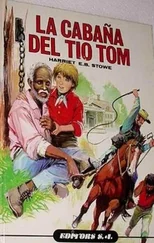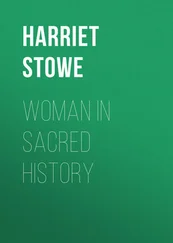Harriet Stowe - My Wife and I. Harry Henderson's History
Здесь есть возможность читать онлайн «Harriet Stowe - My Wife and I. Harry Henderson's History» — ознакомительный отрывок электронной книги совершенно бесплатно, а после прочтения отрывка купить полную версию. В некоторых случаях можно слушать аудио, скачать через торрент в формате fb2 и присутствует краткое содержание. ISBN: , Издательство: Иностранный паблик, Жанр: foreign_prose, foreign_language, на английском языке. Описание произведения, (предисловие) а так же отзывы посетителей доступны на портале библиотеки ЛибКат.
- Название:My Wife and I. Harry Henderson's History
- Автор:
- Издательство:Иностранный паблик
- Жанр:
- Год:неизвестен
- ISBN:http://www.gutenberg.org/ebooks/47874
- Рейтинг книги:5 / 5. Голосов: 1
-
Избранное:Добавить в избранное
- Отзывы:
-
Ваша оценка:
- 100
- 1
- 2
- 3
- 4
- 5
My Wife and I. Harry Henderson's History: краткое содержание, описание и аннотация
Предлагаем к чтению аннотацию, описание, краткое содержание или предисловие (зависит от того, что написал сам автор книги «My Wife and I. Harry Henderson's History»). Если вы не нашли необходимую информацию о книге — напишите в комментариях, мы постараемся отыскать её.
My Wife and I. Harry Henderson's History — читать онлайн ознакомительный отрывок
Ниже представлен текст книги, разбитый по страницам. Система сохранения места последней прочитанной страницы, позволяет с удобством читать онлайн бесплатно книгу «My Wife and I. Harry Henderson's History», без необходимости каждый раз заново искать на чём Вы остановились. Поставьте закладку, и сможете в любой момент перейти на страницу, на которой закончили чтение.
Интервал:
Закладка:
Harriet Beecher Stowe
My Wife and I / Harry Henderson's History
PREFACE
During the passage of this story through The Christian Union, it has been repeatedly taken for granted by the public press that certain of the characters are designed as portraits of really existing individuals.
They are not. The supposition has its rise in an imperfect consideration of the principles of dramatic composition. The novel-writer does not profess to paint portraits of any individual men and women in his personal acquaintance. Certain characters are required for the purposes of his story. He conceives and creates them, and they become to him real living beings, acting and speaking in ways of their own. But on the other hand, he is guided in this creation by his knowledge and experience of men and women, and studies individual instances and incidents only to assure himself of the possibility and probability of the character he creates. If he succeeds in making the character real and natural, people often are led to identify it with some individual of their acquaintance. A slight incident, an anecdote, a paragraph in a paper, often furnishes the foundation of such a character; and the work of drawing it is like the process by which Professor Agassiz from one bone reconstructs the whole form of an unknown fish. But to apply to any single living person such delineation is a mistake, and might be a great wrong both to the author and to the person designated.
For instance, it being the author's purpose to show the embarrassment of the young champion of progressive principles, in meeting the excesses of modern reformers, it came in her way to paint the picture of the modern emancipated young woman of advanced ideas and free behavior. And this character has been mistaken for the portrait of an individual , drawn from actual observation. On the contrary, it was not the author's intention to draw an individual, but simply to show the type of a class. Facts as to conduct and behavior similar to those she has described are unhappily too familiar to residents of New York. But in this as in other cases the author has simply used isolated facts in the construction of a dramatic character suited to the design of the story. If the readers of to-day will turn back to Miss Edgeworth's Belinda , they will find that this style of manners, these assumptions and mode of asserting them, are no new things. In the character of Harriet Freke, Miss Edgeworth vividly portrays the manners and sentiments of the modern emancipated women of our times, who think themselves
"Ne'er so sure our passion to create,
As when they touch the brink of all we hate."
Certainly the author knows no original fully answering to the character of Mrs. Cerulean, though she has heard such an one described; and, doubtless, there are traits in her equally attributable to all fair enthusiasts who mistake the influence of their own personal charms and fascinations over the other sex, for real superiority of intellect.
There are happily several young women whose vigorous self-sustaining career, in opening paths of usefulness alike for themselves and others, are like that of Ida Van Arsdel; and the true experiences of a lovely New York girl first suggested the character of Eva; yet both of them are, in execution, strictly imaginary paintings, adapted to the story. In short, some real character, or, in many cases, some two or three, furnish the germs, but the germs only, out of which new characters are developed.
In close: The author wishes to dedicate this Story to the many dear, bright young girls whom she is so happy as to number among her choicest friends. No matter what the critics say of it, if they like it; and she hopes from them, at least, a favorable judgment.
Twin-Mountain House, N.H.
October, 1871.
CHAPTER I.
THE AUTHOR DEFINES HIS POSITION
It appears to me that the world is returning to its second childhood, and running mad for Stories. Stories! Stories! Stories! everywhere; stories in every paper, in every crevice, crack and corner of the house. Stories fall from the pen faster than leaves of autumn, and of as many shades and colorings. Stories blow over here in whirlwinds from England. Stories are translated from the French, from the Danish, from the Swedish, from the German, from the Russian. There are serial stories for adults in the Atlantic , in the Overland , in the Galaxy , in Harper's , in Scribner's . There are serial stories for youthful pilgrims in Our Young Folks , the Little Corporal , " Oliver Optic ," the Youth's Companion , and very soon we anticipate newspapers with serial stories for the nursery. We shall have those charmingly illustrated magazines, the Cradle , the Rocking Chair , the First Rattle , and the First Tooth , with successive chapters of "Goosy Goosy Gander," and "Hickory Dickory Dock," and "Old Mother Hubbard," extending through twelve, or twenty-four, or forty-eight numbers.
I have often questioned what Solomon would have said if he had lived in our day. The poor man, it appears, was somewhat blasé with the abundance of literature in his times, and remarked that much study was weariness to the flesh. Then, printing was not invented, and "books" were all copied by hand, in those very square Hebrew letters where each letter is about as careful a bit of work as a grave-stone. And yet, even with all these restrictions and circumscriptions, Solomon rather testily remarked, "Of making many books there is no end!" What would he have said had he looked over a modern publisher's catalogue?
It is understood now that no paper is complete without its serial story, and the spinning of these stories keeps thousands of wheels and spindles in motion. It is now understood that whoever wishes to gain the public ear, and to propound a new theory, must do it in a serial story. Hath any one in our day, as in St. Paul's, a psalm, a doctrine, a tongue, a revelation, an interpretation – forthwith he wraps it up in a serial story, and presents it to the public. We have prison discipline, free-trade, labor and capital, woman's rights, the temperance question, in serial stories. We have Romanism and Protestantism, High Church, and Low Church and no Church, contending with each other in serial stories, where each side converts the other, according to the faith of the narrator.
We see that this thing is to go on. Soon it will be necessary that every leading clergyman should embody in his theology a serial story, to be delivered from the pulpit Sunday after Sunday. We look forward to announcements in our city papers such as these: The Rev. Dr. Ignatius, of the Church of St. Mary the Virgin, will begin a serial romance, to be entitled "St. Sebastian and the Arrows," in which he will embody the duties, the trials, and the temptations of the young Christians of our day. The Rev. Dr. Boanerges, of Plymouth Rock Church, will begin a serial story, entitled "Calvin's Daughter," in which he will discuss the distinctive features of Protestant theology. The Rev. Dr. Cool Shadow will go on with his interesting romance of "Christianity a Dissolving View," – designed to show how everything is, in many respects, like everything else, and all things lead somewhere, and everything will finally end somehow, and that therefore it is important that everybody should cultivate general sweetness, and have the very best time possible in this world.
By the time all these romances get to going, the system of teaching by parables, and opening one's mouth in dark sayings, will be fully elaborated. Pilgrim's Progress will be no where. The way to the celestial city will be as plain in everybody's mind as the way up Broadway – and so much more interesting! Finally all science and all art will be explained, conducted, and directed by serial stories, till the present life and the life to come shall form only one grand romance. This will be about the time of the Millennium.
Читать дальшеИнтервал:
Закладка:
Похожие книги на «My Wife and I. Harry Henderson's History»
Представляем Вашему вниманию похожие книги на «My Wife and I. Harry Henderson's History» списком для выбора. Мы отобрали схожую по названию и смыслу литературу в надежде предоставить читателям больше вариантов отыскать новые, интересные, ещё непрочитанные произведения.
Обсуждение, отзывы о книге «My Wife and I. Harry Henderson's History» и просто собственные мнения читателей. Оставьте ваши комментарии, напишите, что Вы думаете о произведении, его смысле или главных героях. Укажите что конкретно понравилось, а что нет, и почему Вы так считаете.












